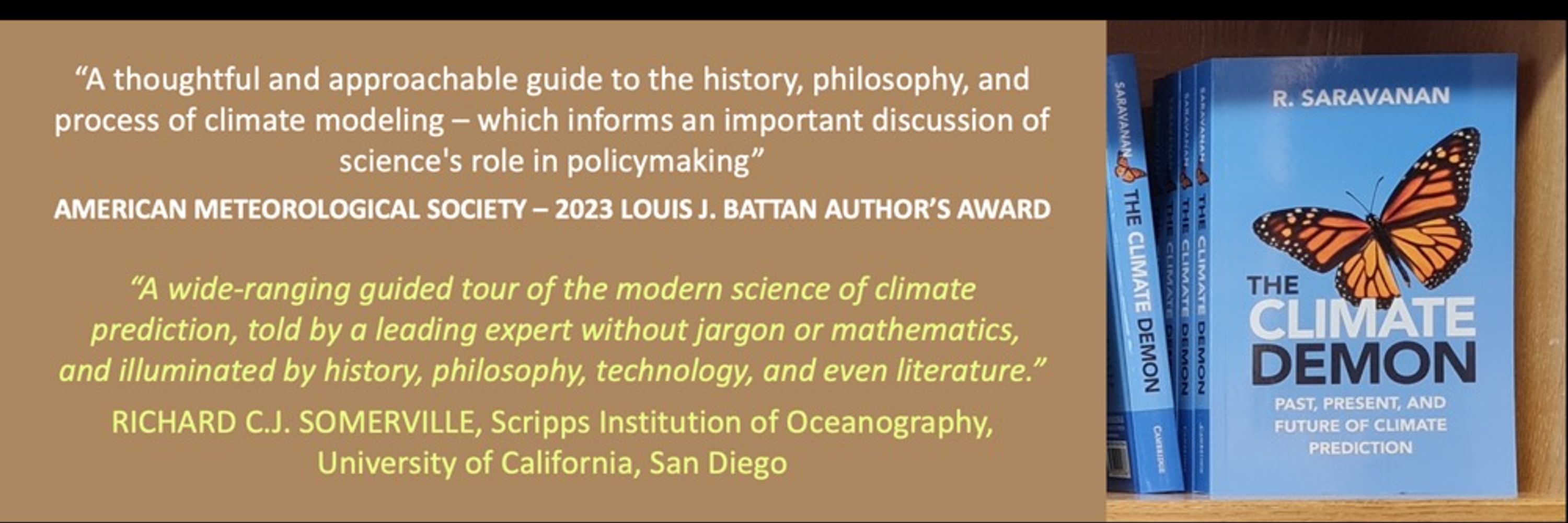R. Saravanan
@sarava.net
3.2K followers
580 following
690 posts
Climate scientist, Professor, and Dept Head at Texas A&M University. Author: ClimateDemon.com Now-and-then-blogger: https://Metamodel.blog Bio: https://r.saravanan.us/about
Posts
Media
Videos
Starter Packs
Pinned
Reposted by R. Saravanan
Reposted by R. Saravanan
R. Saravanan
@sarava.net
· 8d
Reposted by R. Saravanan
R. Saravanan
@sarava.net
· 9d
Reposted by R. Saravanan
Reposted by R. Saravanan
R. Saravanan
@sarava.net
· 10d
Reposted by R. Saravanan
Reposted by R. Saravanan
R. Saravanan
@sarava.net
· 13d
R. Saravanan
@sarava.net
· 13d
R. Saravanan
@sarava.net
· 13d
R. Saravanan
@sarava.net
· 13d
Reposted by R. Saravanan
R. Saravanan
@sarava.net
· 13d
R. Saravanan
@sarava.net
· 14d
R. Saravanan
@sarava.net
· 14d
R. Saravanan
@sarava.net
· 14d
R. Saravanan
@sarava.net
· 14d
R. Saravanan
@sarava.net
· 15d
R. Saravanan
@sarava.net
· 15d









